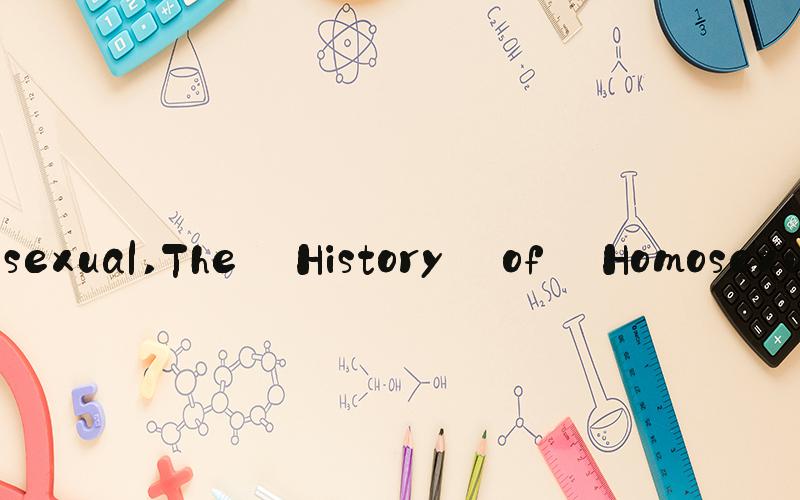 Homosexual: Understanding and Supporting the LGBTQ+ Community
Homosexual: Understanding and Supporting the LGBTQ+ CommunityHomosexuality refers to sexual attraction or romantic feelings toward people of the same gender. It is a part of the LGBTQ+ community, which stands for lesbian, gay, bisexual, transgender, and queer/questioning. The rise of the LGBTQ+ rights movement has brought a lot of attention to the issue of homosexuality, and it is important for individuals to understand and support the LGBTQ+ community.
The History of HomosexualityHomosexuality has been present throughout human history, although it has been oppressed and hidden for much of it. For example, the ancient Greeks tolerated and even celebrated same-sex relationships, while medieval Europe saw homosexuality as a sin punishable by death. It was only in the past century that there has been a movement toward acceptance and equality for individuals who identify as LGBTQ+. Today, same-sex marriage is legal in many countries, and LGBTQ+ individuals have legal protections against discrimination in many areas of life.
The Science of HomosexualityResearch has shown that homosexuality is not a choice, but rather a natural variation of human sexuality. Studies have found differences in brain structure and hormone levels between homosexuals and heterosexuals, suggesting that sexuality is innate rather than a product of upbringing or social conditioning. Furthermore, attempts to change a person's sexual orientation through therapy or religious conversion has been widely discredited and is considered harmful.
Challenges Faced by the LGBTQ+ CommunityDespite legal progress and increased social acceptance, LGBTQ+ individuals still face many challenges. Hate crimes against LGBTQ+ individuals are still prevalent, and many individuals struggle with discrimination and harassment in the workplace, housing, and healthcare settings. Additionally, the mental health of LGBTQ+ individuals is often negatively impacted by societal stigma, rejection from family members, and fear of persecution.
How to Support the LGBTQ+ CommunityThere are many ways that individuals can support the LGBTQ+ community. One of the most important ways is to educate oneself about LGBTQ+ identities, issues, and history. This can include reading books and articles, attending events, and listening to the personal experiences of LGBTQ+ individuals. Additionally, it is important to be an ally by speaking up against discrimination and supporting LGBTQ+ rights initiatives. Building a welcoming and inclusive community can also be done by offering support to local LGBTQ+ organizations and advocating for LGBTQ+ inclusive policies at schools, workplaces, and in government.
ConclusionHomosexuality and the larger LGBTQ+ community have been the subject of much debate, but it is important for individuals to understand and support this community. Understanding the science and history of homosexuality, recognizing the challenges faced by LGBTQ+ individuals, and taking action to support and include this community are all critical steps in creating a more just and equal society for all.
